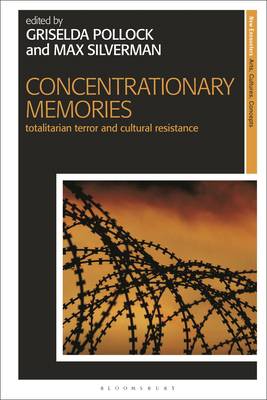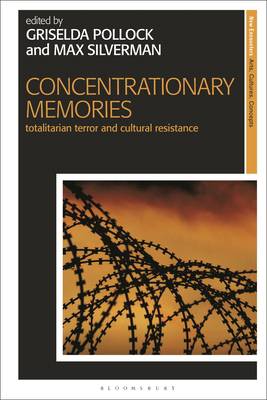
Bedankt voor het vertrouwen het afgelopen jaar! Om jou te bedanken bieden we GRATIS verzending (in België) aan op alles gedurende de hele maand januari.
- Afhalen na 1 uur in een winkel met voorraad
- In januari gratis thuislevering in België
- Ruim aanbod met 7 miljoen producten
Bedankt voor het vertrouwen het afgelopen jaar! Om jou te bedanken bieden we GRATIS verzending (in België) aan op alles gedurende de hele maand januari.
- Afhalen na 1 uur in een winkel met voorraad
- In januari gratis thuislevering in België
- Ruim aanbod met 7 miljoen producten
Zoeken
Concentrationary Memories
Totalitarian Terror and Cultural Resistance
€ 296,95
+ 593 punten
Omschrijving
Concentrationary Memories has, as its premise, the idea at the heart of Alain Resnais's film Night and Fog (1955) that the concentrationary plague unleashed on the world by the Nazis in the 1930s and 1940s is not simply confined to one place and one time but is now a permanent presence shadowing modern life. It further suggests that memory (and, indeed art in general) must be invoked to show this haunting of the present by this menacing past so that we can read for the signs of terror and counter its deformation of the human.
Through working with political and cultural theory on readings of film, art, photographic and literary practices, Concentrationary Memories analyses different cultural responses to concentrationary terror in different sites in the post-war period, ranging from Auschwitz to Argentina. These readings show how those involved in the cultural production of memories of the horror of totalitarianism sought to find forms, languages and image systems which could make sense of and resist the post-war condition in which, as Hannah Arendt famously stated 'everything is possible' and 'human beings as human beings become superfluous.' Authors include Nicholas Chare, Isabelle de le Court, Thomas Elsaesser, Benjamin Hannavy Cousen, Matthew John, Claire Launchbury, Sylvie Lindeperg, Laura Malosetti Costa, Griselda Pollock, Max Silverman, Glenn Sujo, Annette Wieviorka and John Wolfe Ackerman.
Through working with political and cultural theory on readings of film, art, photographic and literary practices, Concentrationary Memories analyses different cultural responses to concentrationary terror in different sites in the post-war period, ranging from Auschwitz to Argentina. These readings show how those involved in the cultural production of memories of the horror of totalitarianism sought to find forms, languages and image systems which could make sense of and resist the post-war condition in which, as Hannah Arendt famously stated 'everything is possible' and 'human beings as human beings become superfluous.' Authors include Nicholas Chare, Isabelle de le Court, Thomas Elsaesser, Benjamin Hannavy Cousen, Matthew John, Claire Launchbury, Sylvie Lindeperg, Laura Malosetti Costa, Griselda Pollock, Max Silverman, Glenn Sujo, Annette Wieviorka and John Wolfe Ackerman.
Specificaties
Betrokkenen
- Uitgeverij:
Inhoud
- Aantal bladzijden:
- 336
- Taal:
- Engels
- Reeks:
Eigenschappen
- Productcode (EAN):
- 9781780768960
- Verschijningsdatum:
- 20/12/2012
- Uitvoering:
- Hardcover
- Formaat:
- Ongenaaid / garenloos gebonden
- Afmetingen:
- 166 mm x 241 mm
- Gewicht:
- 843 g

Alleen bij Standaard Boekhandel
+ 593 punten op je klantenkaart van Standaard Boekhandel
Beoordelingen
We publiceren alleen reviews die voldoen aan de voorwaarden voor reviews. Bekijk onze voorwaarden voor reviews.








